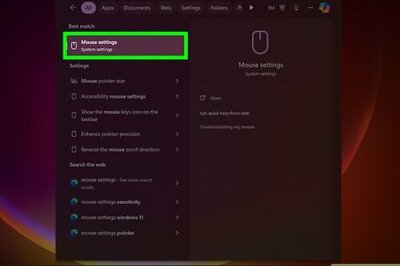
views
Washington: Women are more likely to use cellphones for texting or emails to build relationships and have deeper conversations, while men prefer using their devices for entertainment purposes and accessing social networking sites, a new US study has found.
Women college students spend an average of 10 hours a day on their cellphones and men college students spend nearly eight, with excessive use posing potential risks for academic performance, researchers from Baylor University said.
"As cellphone functions increase, addictions to this seemingly indispensable piece of technology become an increasingly realistic possibility," said researcher James Roberts, The Ben H Williams Professor of Marketing in Baylor's Hankamer School of Business.
The study noted that approximately 60 per cent of college students admit they may be addicted to their cellphone, and some indicated they get agitated when it is not in sight.
The study - based on an online survey of 164 college students - examined 24 cellphone activities and found that time spent on 11 of those activities differed significantly across the sexes.
Some functions - among them Pinterest and Instagram - are associated significantly with cellphone addiction. But others that might logically seem to be addictive - Internet use and gaming - were not.
Of the top activities, respondents overall reported spending the most time texting (an average of 94.6 minutes a day), followed by sending emails (48.5 minutes), checking Facebook (38.6 minutes), surfing the Internet (34.4 minutes) and listening to their iPods (26.9 minutes).
Men send about the same number of emails as women but spend less time on each.
"That may suggest that they're sending shorter, more utilitarian messages than their female counterparts," Roberts said.
Women may be more inclined to use cellphones for social reasons such as texting or emails to build relationships and have deeper conversations, the study suggested.
The men in the study, while more occupied with using their cellphones for utilitarian or entertainment purposes, "are not immune to the allure of social media," Roberts said.
They spent time visiting such social networking sites as Facebook, Instagram and Twitter. Among reasons they used Twitter were to follow sports figures, catch up on the news - "or, as one male student explained it, 'waste time,'" Roberts said.
The study was published in the Journal of Behavioral Addictions.




















Comments
0 comment